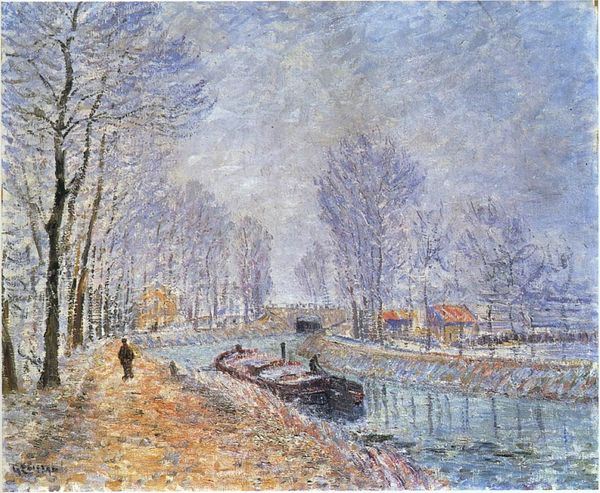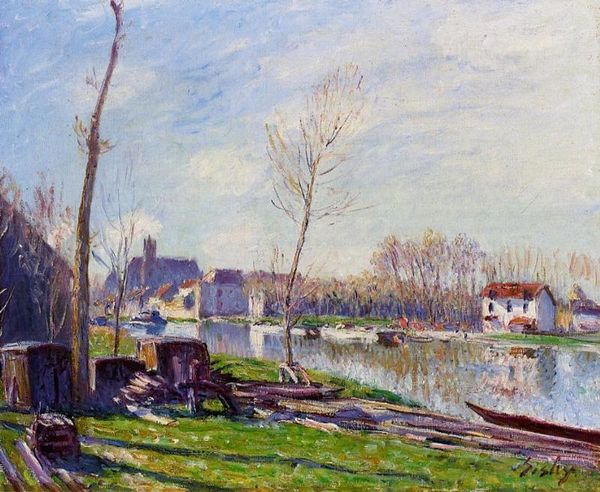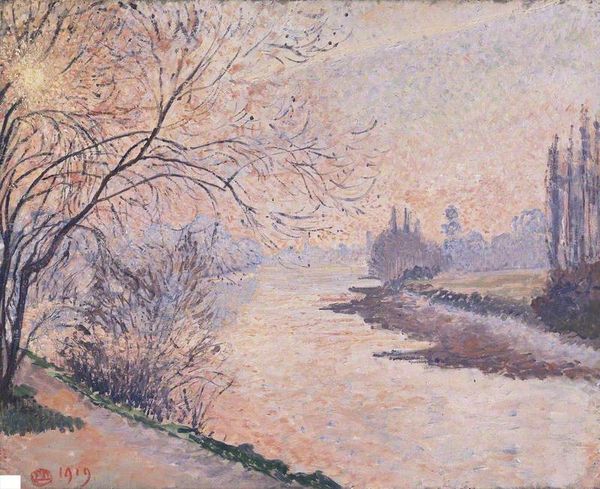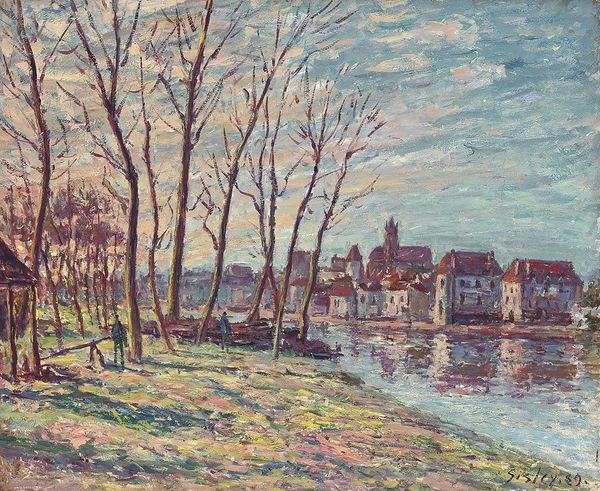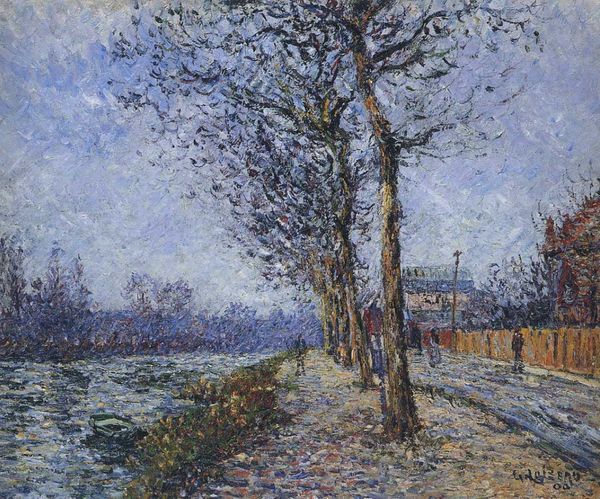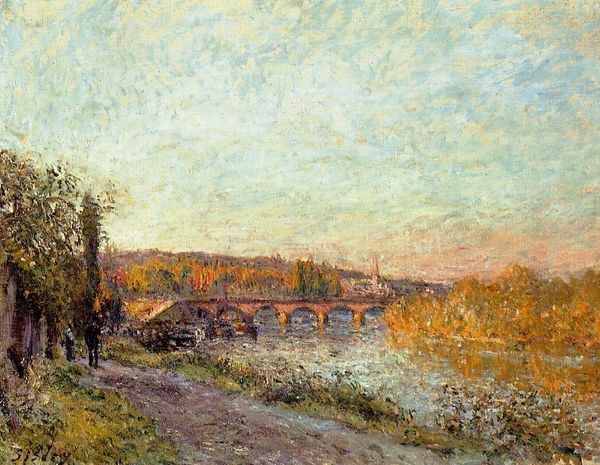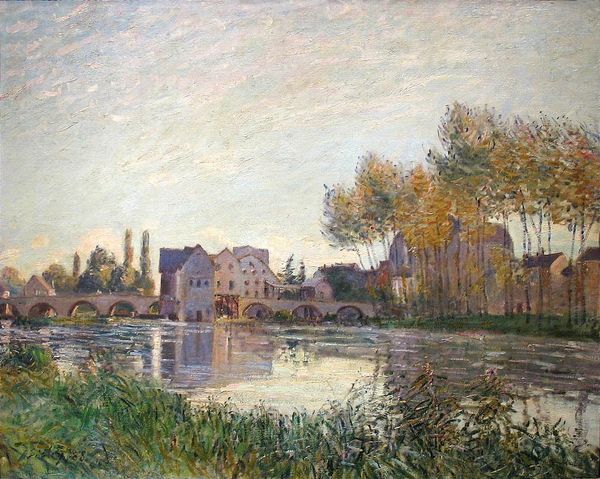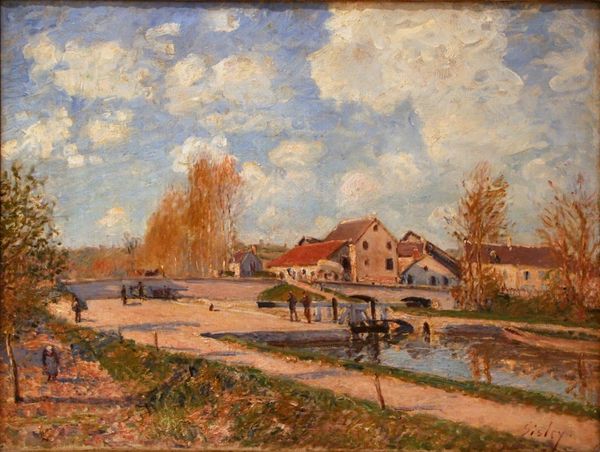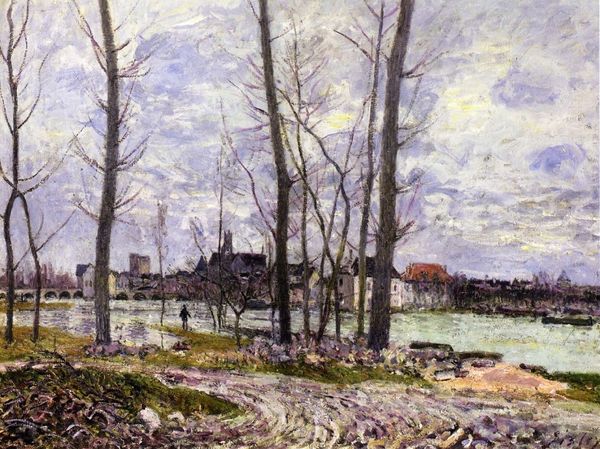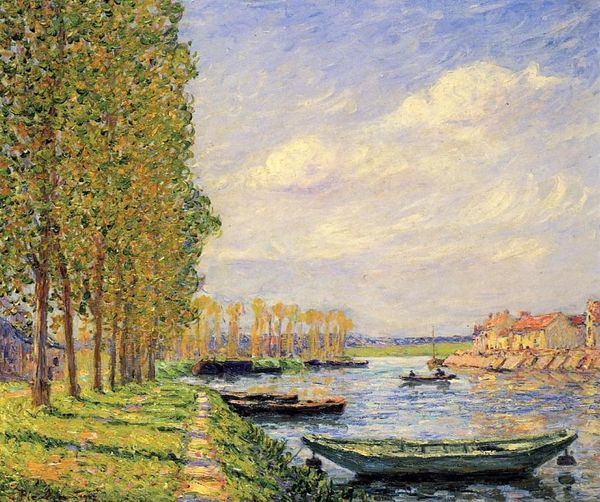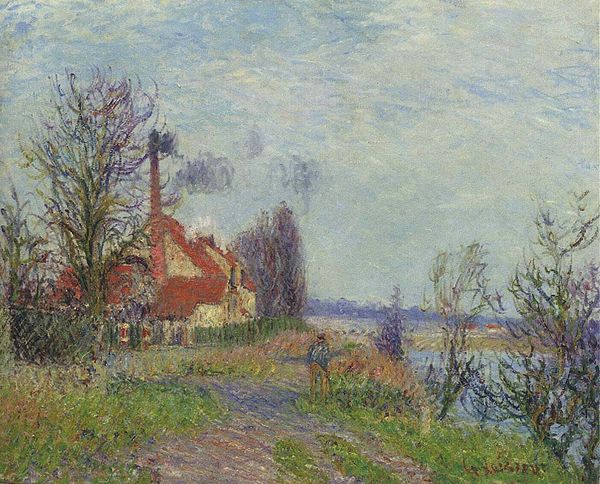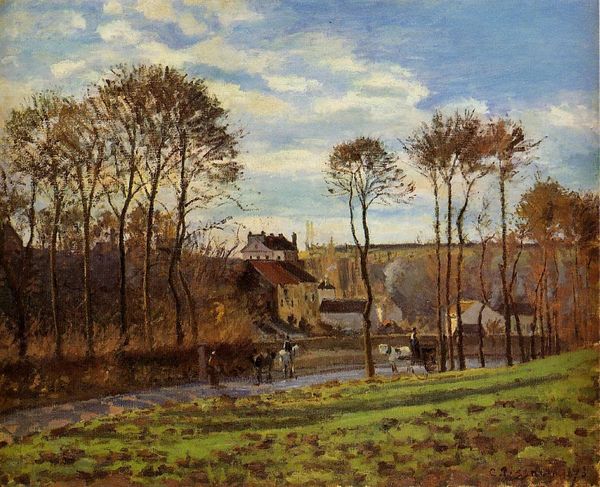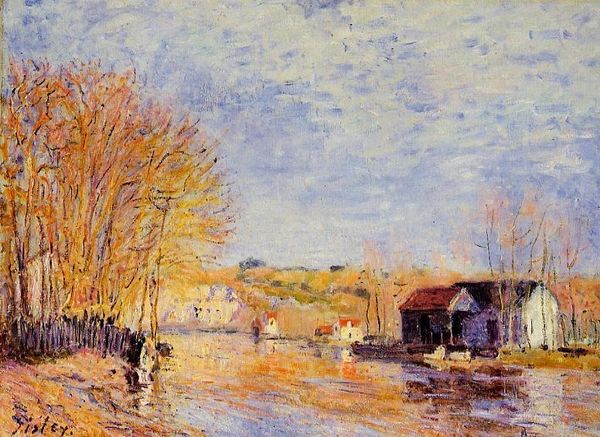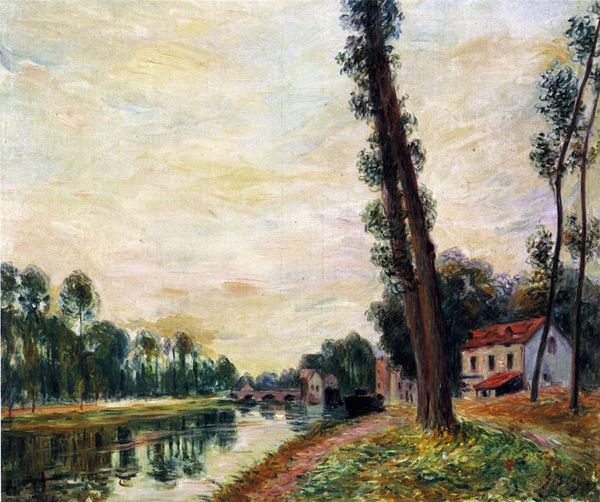
Dimensions: 50 x 65 cm
Copyright: Public domain
Editor: This is Alfred Sisley’s *A February Morning at Moret sur Loing*, painted in 1881 using oil paints. There's a kind of hazy calm to this painting; a still waterway reflects the town. I'm curious—how do you interpret this work, especially the way Sisley portrays light? Curator: This canvas captures more than just light. It's also imbued with an emotional and historical symbolism. Consider the bare trees, common signifiers of winter’s temporality. These trees reach toward a pale sky, framing a townscape, anchored by a church spire—a symbol of both spiritual hope and communal identity. Don't you see how the light, muted yet present, softens these otherwise stark forms, conveying a sense of resilience and enduring life? Editor: Yes, I can see that now. The church feels more protective than imposing because of the hazy light, and so the scene feels both tranquil and optimistic. Curator: Precisely. And consider, too, that landscape painting had a complex relationship to ideas of nation and identity. Sisley, though born in Paris, was of British parentage, adding layers to how we interpret his landscapes, wasn't it? Could that fact give even more weight to his rendering of this town, this very particular place and light? Editor: That's fascinating, I never would have thought about his background in connection with the church. I'm struck now by how much context is captured within these brushstrokes. Thanks! Curator: And I am also reminded to see how visual elements carry histories. Thanks for pointing it out.
Comments
No comments
Be the first to comment and join the conversation on the ultimate creative platform.
